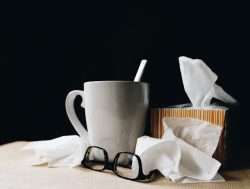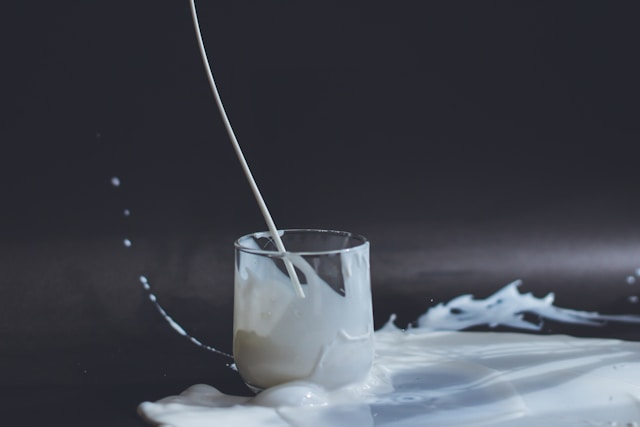I am many things: a writer, a researcher, a women’s health advocate, a teacher, a yogi. I’m also a few not so great things. Add my persistent desire to help with my passion for research and sprinkle in my ego-driven need to be right and you have a recipe for a real know-it-all. At best those traits make me a useful resource to my friends and family, at worst… unbearable? Well, I hope I’m not that bad.
My quest to detoxify my life came somewhere around the time I was trying to get pregnant and I was diagnosed with chemical allergies. I became a bit of a natural health junky. I’ve tried turmeric and macca powder and spirulina and chia seeds. While my track record with the rest is spotty, elderberry has become a staple in my life.
Why? Because I teach college. College students are walking germ factories. They don’t get enough sleep, they don’t eat properly, they live in close quarters, they make out with each other. Probably the only people who encounter more germs than I do are pre-school teachers and flight attendants. That said, you’ll notice germaphobe wasn’t on the above list of my identities. That’s because I know if I keep my immunity strong, I’ll be fine. I do that by taking elderberry (sambucus). And I tell anyone who will listen that they should take elderberry, too.
What is Elderberry?
Elderberry, or sambucus nigra (black elderberry), is a plant native to North America and Europe that produces dark purple to black berries. These berries and extracts from them have been used medicinally for centuries. “It was first referred to as a healer in the 5th century BC and received mentions in the writings of Hippocrates, Dioscurides and Plinius.”
The researcher in me says:
- It can be an effective treatment for the flu, relieving symptoms 4 days sooner
- It has been shown to strengthen immunity “in addition to its antiviral properties, Sambucol Elderberry Extract and its formulations activate the healthy immune system by increasing inflammatory cytokine production.”
- Elderberry extract has been shown effective against avian flu and HIV
- It has been used to treat a whole host of other conditions including bronchitis, sinus infection, constipation, gingivitis and even obesity with varying degrees of research to support this
The natural health enthusiast in me says:
Thank goodness! We’ve got to start using safe and natural alternatives to antibiotics and chemicals. With least 30% of the antibiotics prescribed in the country found to be unnecessary, we have created drug-resistant strains of bacteria. According to the National Institute of Health, “the way we’ve been using antibiotics is helping to create these new drug-resistant “superbugs.” The fear of these bacteria is real.
The FDA has finally taken steps to fight this problem by banning triclosan and 18 other anti-bacterial chemicals found in soaps and cosmetics.”There’s no data demonstrating that over-the-counter antibacterial soaps are better at preventing illness than washing with plain soap and water,” the agency said in a press release issued shortly after the rule was announced.
In fact, “There’s some evidence suggesting that widespread use of triclosan, which is used in liquid soaps, and triclocarban, which is used in bar soaps, could lead to the development of germs that are resistant to antibiotics. Other studies have found that exposure to these chemicals disrupts hormone cycles in animals.”
Between our overuse of antibiotics and some of the chemicals created under the guise of keeping us safe, we’ve made bacteria even more dangerous. Protecting our natural immunity may be the smartest thing we can do this cold and flu season.
The know-it-all in me says:
I told you so! Elderberry works.*
I take it when I’m short on sleep, when I’ve been around people who are sick, when I travel, or when I feel myself coming down with something. So this coming cold and flu season, consider trying elderberry before you reach for that Zpac and save us all from the superbugs.
*In no way do I profit from you taking elderberry. I don’t work for a natural health company, an elderberry farm, or hippie commune. Yet…
We Need Your Help
More people than ever are reading Hormones Matter, a testament to the need for independent voices in health and medicine. We are not funded and accept limited advertising. Unlike many health sites, we don’t force you to purchase a subscription. We believe health information should be open to all. If you read Hormones Matter, like it, please help support it. Contribute now.
Yes, I would like to support Hormones Matter.
This article was published originally in September, 2016.
















These are complex cold medicines, which usually contain at least 2-3 components. One of them is phenylephrine. It is always indicated in the composition. Another tip for such drugs: in the name of their often used particles “Cold” and “Fleu”. Translated from English, they mean colds and flu, respectively. The use of these terms is not accidental. These drugs came to us from the Anglo-Saxon countries in the early 1990s, when not only the iron, but also the pharmaceutical “curtain” collapsed. similar cocktail drugs were not taken. By the way, many of them contained not only substances that are close in action to adrenaline (like PV), but also the drug codeine. Medicines with similar active substances were prescribed exclusively by prescription.
this fruit is very delicious, i am ever eat it every back to school when i am 9 years old. Thanks for yor article, now i am know what th purpose of this fruit
Yes Im agree with this “It can be an effective treatment for the flu, relieving symptoms 4 days sooner” And it my country this plant growth very fast
In my country, the fruit was called Mulberry. has a form very similar to it. And I just realized if the fruit has benefits to prevent the flu, thanks for information.